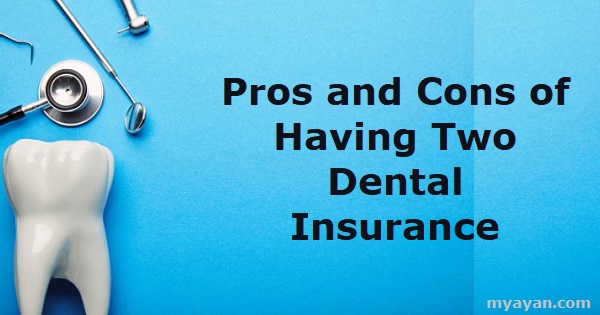What happens if you or a family member has several dental insurance plans? Do you now receive four cleanings if both plans cover two cleanings annually?
Not quite. If multiple dental plans insure you, neither your benefits nor the cost of your dental checkup is doubled. On the other hand, you could spend less on dental care. Learn more about dental insurance with dual coverage by reading on.
The biggest benefit of dual coverage is the potential cost savings on dental treatment. The secondary plan may pay all or part of the outstanding debt if the primary plan does not cover a certain therapy or just partially covers it (assuming the treatment is also covered under the secondary plan).
Here is an illustration of how to coordinate benefits with dual dental insurance:
Having two insurance plans may provide access to greater maximum coverage limits and broader coverage for a range of dental services.
While seeking dental treatment, you may be given a choice to select between two insurance companies, providing you greater freedom to select the dentist who best meets your requirements.
If you have two insurance policies, you may use the one with the best coverage and cost-sharing structure to save money on dental services.
If you have two insurance policies, your out-of-pocket costs may be reduced because both will likely assist in covering the cost of dental care.
Yet it's crucial to remember that having two insurance plans can also have disadvantages, such as confusion and logistical challenges in arranging coverage and handling claims. Ensure that having two insurance policies is the best option for your dental care requirements by carefully reading the conditions of each one.
Dual dental coverage might have certain drawbacks, including:
It can complicate coordinating the benefits and claims of two insurance policies and is time-consuming.
Handling claims from two insurance companies can be challenging and might lead to mistakes or delays.
Two insurance plans might occasionally result in twice paying for the same protection, wasting money.
Some insurance companies have limitations on how their benefits can be combined with those of other insurance plans.
The cost may be higher because you must pay two premiums for two insurance plans.
Dual coverage is when you have two dental insurance policies covering you. Insurance providers, like Delta Dental of Arizona, use the coordination of benefits (COB) principle to establish how much each dental plan will cover. Dental insurers coordinate benefits to ensure that the total benefits from all of your dental policies do not exceed 100% of the dentist's fees. An overview of how to benefit coordination is provided below:
1. Following your benefits coverage, the main plan covers the claim.
2. The secondary plan examines the claim and the original plan's payout. It covers any outstanding debt for eligible services but does not contribute to the deductible under the primary plan (if there is one).
Adults can easily determine which plan is primary or secondary: The primary plan is typically provided by your employer, and your spouse or domestic partner provides the secondary plan. The coverage of the parent whose birth date (month and date) is earlier in the year often determines the primary insurance for children. The year is irrelevant. For instance, if the mother was born on April 8, 1974, and the father was born on November 17, 1975, the mother's coverage would be primary. If parents are divorced, these requirements could be different.
Also, remember that various plans may have different guidelines for coordinating benefits, so it's a good idea to consult your benefit booklets for more information.
Finally, having two dental insurance policies can expand coverage and perhaps result in cost savings for dental procedures. The cost of paying two premiums, the difficulty of coordinating benefits, and the potential for coverage overlap are all possible disadvantages. Depending on your particular circumstances, including your dental needs, financial condition, and the specifics of your insurance policies, you may or may not choose to have two dental insurance plans. When selecting a choice, it's crucial to analyze the advantages and disadvantages and consider your particular position.

Yet, because treatment costs may be split between your two carriers up to 100%, having dual coverage may result in you paying less for dental operations than if you were only covered by one plan.
You are responsible for covering all relevant premiums and deductibles for both plans if you have more than one health insurance policy. Your secondary insurance will not cover your first insurance's deductible. Other cost-sharing obligations or out-of-pocket expenses, such as co-payments or coinsurance, can also be owed by you. This a situation where one person benefits from several insurance policies on the same property against similar dangers.
Customers who submit duplicate applications run a higher risk of losing their tax credits or insurance. Suppose all other members of the current application are enrolled on the duplicate application, and one person submits a duplicate application on a new application. In that case, coverage for all other members of the existing application may be terminated.